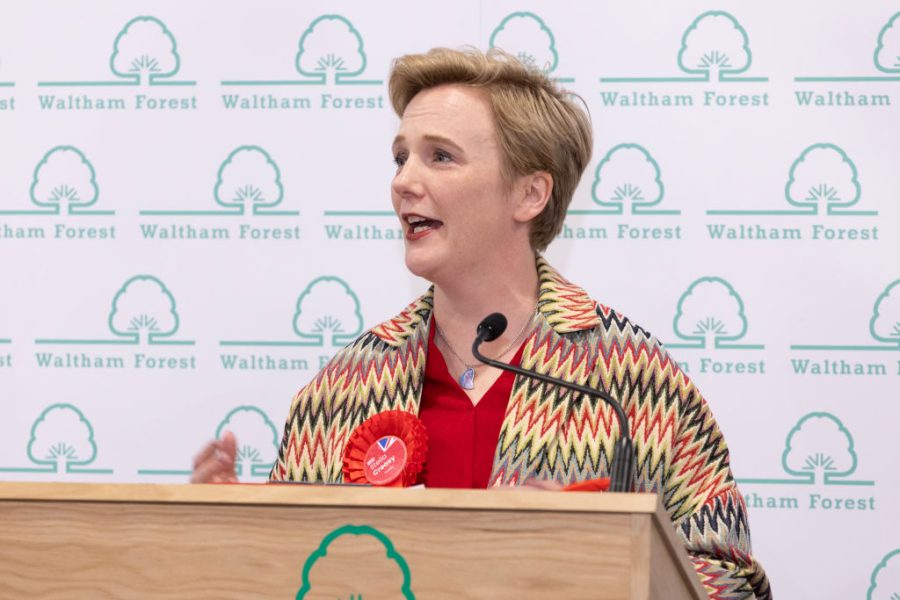‘Do I think some women were born with penises? Yes,’ declared Stella Creasy in 2022, in a moment of characteristic defiance against biological common sense. The Walthamstow MP has built a career on provocation, ideology, and showmanship, but her latest crusade is more than just performance. Creasy is seeking to remove all legal deterrents to abortion up to and including during birth, even if the baby is capable of surviving outside the womb.
Creasy’s latest campaign to ‘decriminalise’ abortion is not about minor tweaks or supposed modernisation. Her amendment to the Crime and Policing Bill would tear up what little remains of Britain’s ethical red lines on abortion. She wants to repeal the Infant Life (Preservation) Act 1929, which criminalises the intentional destruction of a child ‘capable of being born alive’ (thanks to medical advances, an increasing number of babies born as early as 22 weeks are now able to survive). Her amendment would also scrap sections 58, 59, and 60 of the Offences Against the Person Act 1861, removing the remaining legal deterrents to late-term abortions. In other words, Creasy’s amendment would effectively scrap the current 24-week abortion limit and make it impossible to criminally punish any abortion carried out up to full-term gestation.
How casually Stella Creasy asks us to forget the child in the womb
Creasy’s colleague, the Labour MP for Gower Tonia Antoniazzi, has also tabled an amendment to the same government Bill with similar intentions. In a heated Westminster Hall debate last week on decriminalising abortion, the Labour MPs engaged in a searing argument over their proposals. They were effectively arguing over whose amendment was more appalling. Antoniazzi defended her amendment as essential for protecting women from prosecution, while Creasy contended that only her amendment with its broader scope would achieve true and lasting decriminalisation. Their disagreement exposed the strategic rifts among abortion advocates over how far and how fast to go in dismantling the current legal framework.
To be clear: this isn’t about the right to abortion in the early stages of pregnancy. This is about legal impunity for ending the life of an unborn child for any reason at any point up to and during birth.
Creasy, like Antoniazzi, has repeatedly insisted that she only wants to remove criminal sanctions for women. But that’s a rhetorical sleight of hand. The 24-week abortion limit, the reduction of which is supported by 70 per cent of women, would de facto become redundant for women who are willing to take pills unsupervised. Some 105 MPs have so far signed Creasy’s amendment. Forgive them, for they (hopefully) know not what they do.
Creasy claims this is about shielding women, or ‘post-pregnant persons’ as she might prefer to call them, from ‘gruelling’ prosecutions under archaic laws. She rarely notes that the few women prosecuted in recent years had abortions well beyond the legal limit, sometimes after 32 weeks. These cases have seemingly arisen due to the pills-by-post scheme Creasy supports, allowing at-home abortions without supervision, despite the data showing considerable health complication rates resulting from such procedures.
One such case of a pills-by-post abortion carried out after the legal limit is that of Carla Foster, who took abortion pills when she was between 32 and 34 weeks pregnant. Or Nicola Packer, who did so at 26 weeks. Creasy implies these women are victims of injustice. But what, exactly, is unjust here? Is it the law that still recognises some boundary between unborn life and adult convenience? Or is it the deliberate ending of a viable baby’s life by chemical means?
These aren’t easy cases. They evoke compassion. They are complex, and they require proportional justice. But Creasy doesn’t want nuance. She wants a moral blank cheque – bodily autonomy above all else. Her worldview seemingly contains no moral tension between the rights of the woman and the rights of the unborn. There is only one subject of concern, and she discards dissent as religious fervour.
Her proposed reforms extend well beyond what most people would consider reasonable. A ComRes poll from several years ago found that only 1 per cent of women support abortion up to birth. Creasy dismisses such concerns, citing the law in Northern Ireland, where the right to abortion was imposed despite 79 per cent of respondents to a government consultation on the law change opposing the proposals.
Creasy’s record is one of few accidents or misunderstandings. It is a consistent pattern of pushing the boundaries of what even many pro-choice advocates would consider reasonable. Her proposals include repealing legislation which would hinder infanticide investigations by shielding those who conceal dead newborns. She celebrated the introduction of buffer zones outside abortion clinics, which some argue includes a ban on silent prayer, posting videos of herself dancing to mark the occasion.
It’s worth stepping back and asking what Creasy’s project is. She has called for abortion to be written into law as a ‘basic human right’. In effect, she wants to remove the issue from democratic oversight entirely. Once that right is declared absolute, no legislature could revise the time limits, no matter what science or public opinion says, without, as she sees it, breaching human rights obligations. The result? Fewer legal safeguards and medical checks would allow a viable child’s life to be ended without consequence if the mother carries out the deed herself.
Creasy presents this as progress. Modern, compassionate, enlightened. But it is an odd sort of compassion that erases the rights of unborn children in their entirety. It’s a strange sort of progress that makes abortion highly accessible while deeming moral limits as the real cruelty.
You don’t need to oppose abortion, as I do, to be disturbed by this direction of travel. The current framework, though imperfect, aims to balance rights and responsibilities while respecting the importance of the unborn child. Creasy wants to abandon that balance altogether. Her amendment is not a tweak to outdated law. It’s extremism, pure and simple.
Perhaps most shocking is that Stella Creasy is herself a mother. She knows what it is to carry a child to term, to see the life on a scan, to feel the first kick. She knows what her unborn children looked like at every ultrasound scan. And yet, she advocates for a legal system that would allow women to end the lives of their unborn children up to and including birth without fear of prosecution. This is not compassion. It is a blindness to the reality of the unborn child – a refusal to see what is there.
How casually Stella Creasy asks us to forget the child in the womb. In her world, they are voiceless, rightless, and eventually, invisible.







Comments